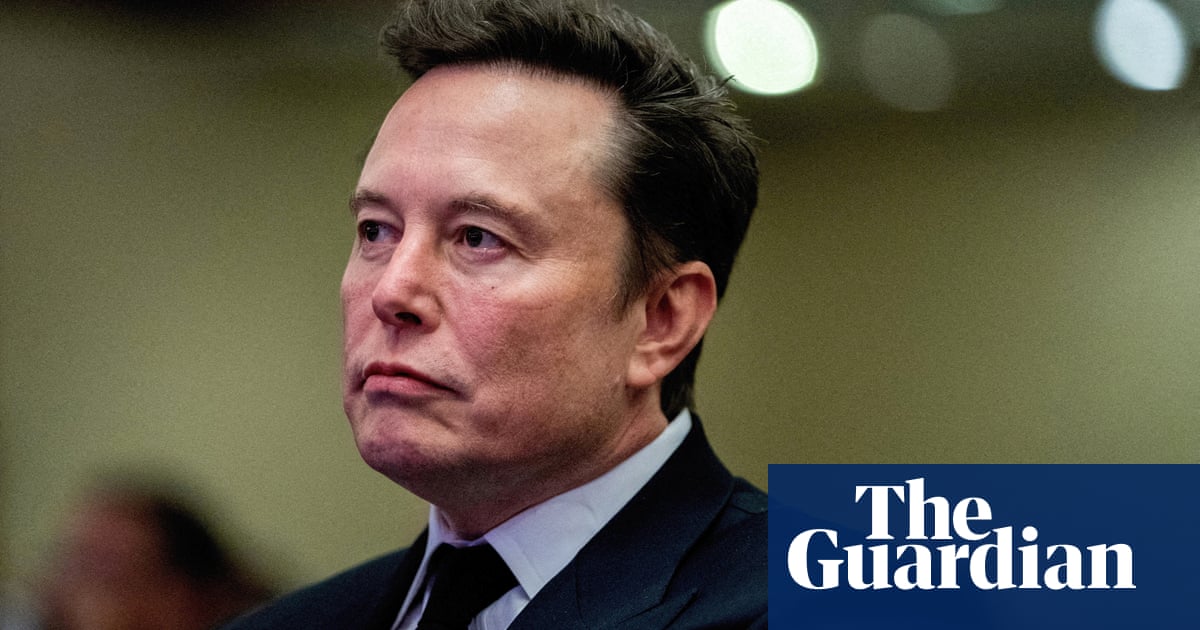Search for the hero inside yourself. Or, if not the hero, then the working person.
In his speech in Birmingham to explain why he couldn’t explain any more ahead of Wednesday’s budget, Keir Starmer had just one firm promise. While he couldn’t guarantee there would be no further tax rises in future budgets, or say where cuts to public services might fall, he could say this. That everything his government did would be in the service of working people and that working people would instinctively know who they were through a process of self-actualisation. Seek and ye shall find. Hopefully.
But what if many people were to look in the wrong places? Had the wrong working-person guru? Or, whisper it, a guru who was not a working person? Just think of the consequences of all this false consciousness. If the new definition of a working person turns out to be someone who is not affected by any tax rises in the forthcoming budget, then what about the employee who finds they are paying more in tax due to fiscal drag. In opposition, Labour always wrote that down as a tax rise. Now, not so much. That kind of thinking requires serious re-education.
Let’s not stop there. How about you find that your bus fare has gone up 50% and you are spending an extra £10 a week on getting to and from work? To the uninformed, that could feel suspiciously similar to a tax increase. Time to achieve nirvana. The realisation that being a working person is not a binary state. Rather it is a process of constant transition.
Schrödinger’s working person. Any one of us can fluctuate between being a working person and not being a working person any number of times during the course of the day. It’s a state of mind. A higher form of awareness. So whether you feel you are being taxed more comes down more to a personal choice than an act of government. And what Keir wants you to do is to spend more time in the mindset of someone who isn’t being taxed more. That way lies happiness. Understood? Glad to have been of help.
Quite why Starmer has got so lost in the semantic weeds of the working person over the past few months is a mystery. It would have been so much easier to say he was going to raise taxes on assets and make employers pay more in national insurance. Everyone would then have known where they stood and Labour would not find itself a hostage to fortune. OK, there might have been a bit of push back on the promise not to raise national insurance. But if you can rewrite the fiscal rules to give yourself another £50bn of investment spending without anyone being that bothered, then national insurance shouldn’t be too much of a headache.
Still, we are where we are: two days out from a budget, most of which has already been leaked. All that was left for Starmer to do was the final pitch-rolling. To make the political case rather than the economic. This was a budget for the long term. To repair the economy after years of Tory mismanagement.
This wasn’t a repeat of 1997 or 2010. Both the economy and public services were on their knees. They weren’t going to be fixed with fiscal giveaways. No one wanted tax rises and spending cuts, but sometimes you just had to be realistic about the situation. So Starmer was doing the right things early on in his government. He might consider doing the wrong thing in four years’ time if things didn’t improve as he hoped. But for now he was going to take the moral high ground. And count on everyone having forgotten the pain by the time the next election came round.
“Better days lie ahead,” Starmer promised. But only after the worse ones were out the way. This wasn’t the budget he had hoped to deliver. Only he had no choice, as the Conservatives had left the economy in a far worse state than he had thought. Though not in a worse state than the Institute for Fiscal Studies had thought. During the election it had warned all parties there was a £40bn “black hole” in the country’s finances. No one had listened. That might have involved awkward choices. The kind Labour now found itself obliged to make.
Starmer said he was now treating the country as a grownup. Levelling with people. Up to a point. Election campaigns were still a truth-free zone. He also boasted about the £63bn of investment he had secured at the recent London summit. He didn’t choose to say that nearly half of that sum was the re-announcement of money already promised. Why spoil a good story?
Then to the crux of the speech. Here Starmer was at his most impressive. He wasn’t trying to hide the pain he was about to cause. Well, not too much. He didn’t want to contemplate a 2% rise in employers’ national insurance contributions being passed on as lower pay rises or price increases. Didn’t fit the narrative.
Rather, he stood by the choices he was making. So he had this to say to the Tories and the armchair economists. Put up or shut up. Don’t just carp from the sidelines. Making promises you are never going to have to keep. Say how you would have plugged the £40bn black hole. Say what public services you would be cutting. Only then would Starmer be prepared to engage in an adult conversation with them. The Tories had had 14 years in government. Growth was flat-lining. Most public services were barely functioning. It was time for a change. Time for a reality check.
Come the questions at the end, not everyone in the media was convinced. But then, they never would be. Always took election promises at face value. Fools. The main thing was that he had got his message across. Things were terrible and might get better. That was all he could have hoped. No one had yet found a fatal flaw in the budget. Now there were just two more sleeps to Wednesday. It was all looking good. If this was as bad as it got, Labour could live with that.
-
Taking the Lead by John Crace is published by Little, Brown (£18.99). To support the Guardian and Observer, order your copy at guardianbookshop.com. Delivery charges may apply.

.png) 2 months ago
21
2 months ago
21













































